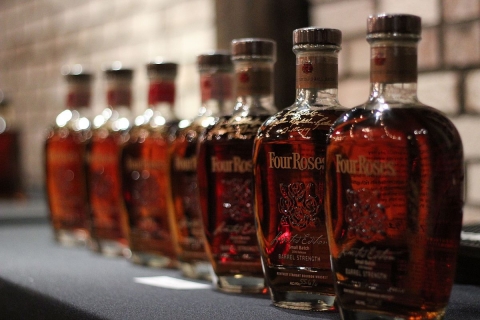Democracy and Drink: Ballot Initiatives Allowing Alcohol Sales in Kentucky

- Aaron Meek
Dr. Benjamin Rush, a signer of the Declaration of Independence and civic leader in the early Republic, warned of the dangers of indulging in drink, writing: “What starts as water and wine quickly turns into punches and toddies and cordials, ending with a hopeless vortex of gin, brandy, and rum, day and night.” According to Dr. Rush, drinking leads a man to all manner of punishment, death worst of all. 20th century politicians and activists carried Dr. Rush’s aversion to spirits forward and passed the 18th Amendment, which prohibited the sale of alcohol. Even after the repeal of prohibition, certain states and localities continue to prohibit alcohol sales within their borders.
This year, the denizens of Scott County, Kentucky are the latest to add their voice the age-old debate as they consider a ballot initiative to transform the country from a “dry” county to a “wet” county. Early returns suggest that the initiative will past. As the names suggest, “dry” counties are those which entirely prohibit the sale of alcohol, while their “wet” counterparts allow the drinks to flow. Further complicating matters, certain Kentucky counties designate themselves as “moist”, meaning that they generally prohibit alcohol sales, except in certain circumstances (such as the sale of wine or beer at restaurants). Such laws often lead to odd situations where the citizens of certain Kentucky counties may have to drive into town or cross the road in order to enjoy a beverage.
This issue is particularly relevant in Kentucky. On one hand, as early as 1990, more than half of Kentucky counties were dry. On the other hand, the growth of the bourbon industry in recent years has generated millions of dollars for the state and placed Kentucky on the cultural map. Scott County’s decision exemplifies the current trend, but the debate is surely far from over.
